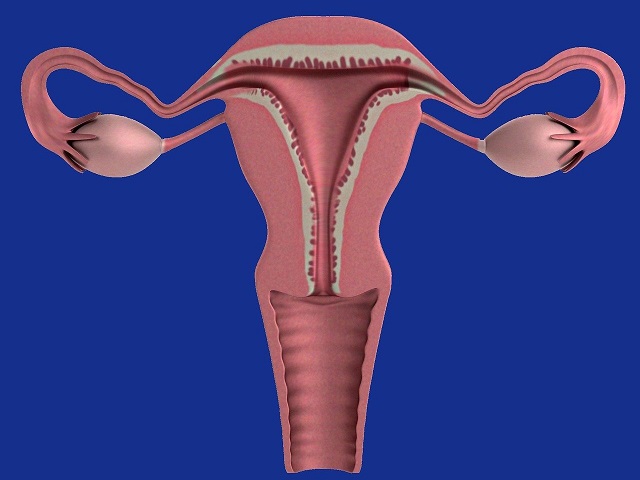8 Signs You May Have Endometriosis -- Symptoms, Causes, Effects, Treatment and Prevention
Endometriosis is a chronic condition in which the tissue lining the uterus (endometrium) grows outside the uterus, commonly affecting the pelvic area. It can cause pain, fertility problems, and other complications.
Symptoms of Endometriosis
The symptoms of endometriosis can vary, but may include:
- Pelvic pain: Persistent pelvic pain that may worsen during menstruation.
- Painful periods: Severe menstrual cramps that may be accompanied by lower back and abdominal pain.
- Painful intercourse: Pain during or after sexual intercourse.
- Heavy or irregular periods: Excessive menstrual bleeding or irregular menstrual cycles.
- Infertility: Difficulty getting pregnant or experiencing recurrent miscarriages.
- Chronic fatigue: Feeling tired or lacking energy.
- Digestive issues: Bloating, constipation, or diarrhea, especially during menstruation.
- Painful bowel movements or urination: Painful or uncomfortable bowel movements or urination during menstruation.
Diagnosis of Endometriosis
The diagnosis of endometriosis may involve:
- Medical history and symptom evaluation: Detailed discussion of symptoms, their severity, and their impact on daily life.
- Pelvic examination: The healthcare provider may feel for abnormalities or tender areas in the pelvic region.
- Imaging tests: Ultrasound or MRI scans may be used to visualize the pelvic organs and detect endometrial growths.
- Laparoscopy: A minimally invasive surgical procedure in which a small camera is inserted through a small incision to examine the pelvic organs and take tissue samples for biopsy.
Causes of Endometriosis
The exact cause of endometriosis is not fully understood, but several factors may contribute to its development, including:
- Retrograde menstruation: Menstrual blood containing endometrial cells flows backward into the pelvic cavity instead of exiting the body, leading to implantation and growth of the endometrial tissue.
- Hormonal imbalances: Abnormal hormone levels, such as increased estrogen production, may promote the growth of endometrial tissue.
- Genetic factors: Endometriosis tends to run in families, suggesting a genetic predisposition to the condition.
- Immune system dysfunction: An impaired immune response may allow the implantation and growth of endometrial tissue outside the uterus.
Effects of Endometriosis
Endometriosis can have various effects on a person's health, including:
- Chronic pain: Persistent pelvic pain and menstrual cramps can significantly impact daily life and well-being.
- Infertility: Endometriosis can cause fertility problems, making it challenging to conceive.
- Adhesions and scarring: The abnormal growth of endometrial tissue can lead to the formation of scar tissue and adhesions, causing organs to stick together.
- Ovarian cysts: Endometriosis may cause the development of ovarian cysts called endometriomas.
- Impact on mental health: The chronic pain, fertility issues, and disruption of daily life can lead to emotional distress, anxiety, and depression.
Treatment and Prevention of Endometriosis
Treatment options for endometriosis aim to manage symptoms, reduce inflammation, and improve fertility. They may include:
- Pain medication: Over-the-counter pain relievers or prescription medications to manage pain and inflammation.
- Hormonal therapy: Birth control pills, hormone-releasing IUDs, or other hormonal medications to regulate the menstrual cycle and reduce symptoms.
- Surgery: Laparoscopic surgery to remove endometrial growths, scar tissue, or adhesions.
- Assisted reproductive technologies (ART): In cases of infertility, procedures such as in vitro fertilization (IVF) may be recommended.
- Lifestyle modifications: Regular exercise, a healthy diet, stress management, and adequate rest can help manage symptoms and promote overall well-being.
Prevention of endometriosis is not currently possible. However, early diagnosis and appropriate treatment can help manage symptoms and prevent complications.
References:
American College of Obstetricians and Gynecologists. (2019). Endometriosis. Retrieved from https://www.acog.org/womens-health/faqs/endometriosis
Mayo Clinic. (2021). Endometriosis. Retrieved from https://www.mayoclinic.org/diseases-conditions/endometriosis/symptoms-causes/syc-20354656
Office on Women's Health. (2019). Endometriosis. Retrieved from https://www.womenshealth.gov/a-z-topics/endometriosis


















